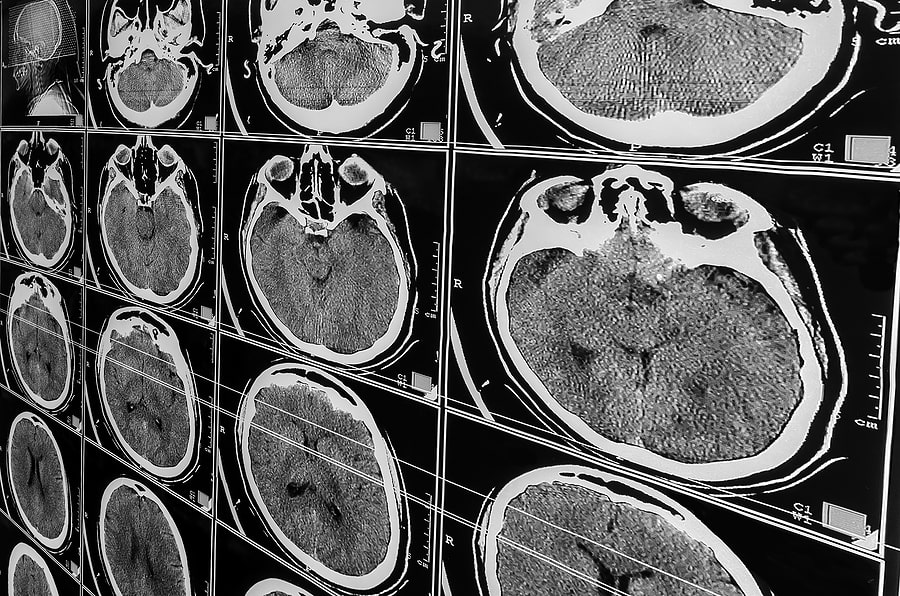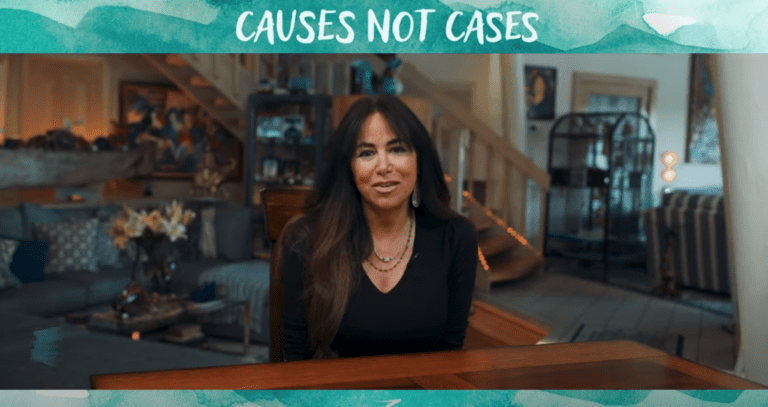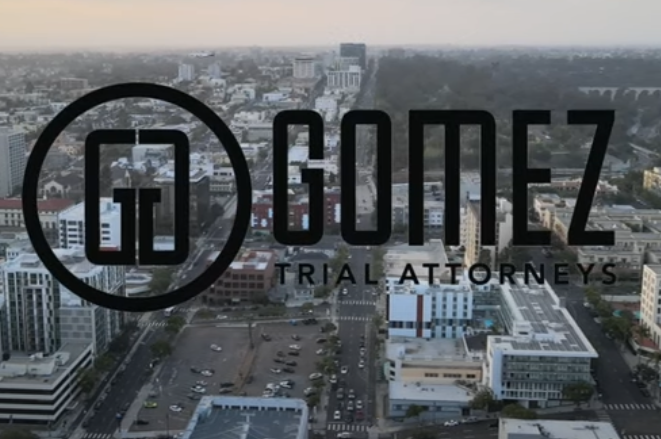 When you have a concussion, you might not know it. It does not always affect people the way they think it would. You do not have to pass out or fall to the ground with excruciating pain. If you are in a car accident, you might tell the investigating officer that you feel just fine. If you fall, you might jump up and walk away to avoid embarrassment. If you are playing a contact sport, you might feel compelled to shake it off and get right back into the game.
When you have a concussion, you might not know it. It does not always affect people the way they think it would. You do not have to pass out or fall to the ground with excruciating pain. If you are in a car accident, you might tell the investigating officer that you feel just fine. If you fall, you might jump up and walk away to avoid embarrassment. If you are playing a contact sport, you might feel compelled to shake it off and get right back into the game.
Because you do not usually bleed or lose consciousness, concussions do not necessarily look or feel like a serious health issue. If you are a little dizzy or light-headed, you might want to ignore the symptoms and get back to life as usual. That is what many people do. Unfortunately, without proper care, a concussion sometimes worsens. They can cause short-term and long-term problems. If you sustain a subsequent head injury before you heal completely, it can compound your existing condition and affect you for the rest of your life.
[lwptoc]
Concussions Can Deceive You
When you sustain a head injury, your symptoms, or lack of symptoms, easily fool you into thinking you are okay. Bystanders usually feel the same way. If you think of your condition as a simple bump on the head, those around you often follow your lead. Concussions do not always cause dramatic symptoms, at least not right away. That is why friends, family members, and even police officers do not always recognize what is happening. Coaches allow players to continue playing. Doctors sometimes describe this head trauma as a “concussion” without clarifying that it is a “mild” traumatic brain injury—and they don’t always define mild for what it is.
Mild does not refer to long-term prognosis—it only refers to the initial presentation of symptoms. A “mild” TBI can result in years of debilitating symptoms.
Emergency rooms send injured patients home to recover when they have no way to predict the outcome. Whether you lose consciousness or keep doing what you are doing, a concussion can continue to affect your brain. When your head wound does not heal as expected, it sets the stage for potential cognitive, physical, and emotional impairments. If someone’s negligence caused your head injury, they should pay for the damages they caused.
“Mild” Is Not Mild
In the past, doctors have allowed their bedside manner to interfere with conveying a simple head injury fact: a concussion is a brain injury. Researchers have determined a few obvious reasons why physicians prefer the term concussion over brain injury.
This is particularly true when the patient is a child.
- The idea of a concussion is less frightening than the idea of a brain injury.
- A concussion does not usually command the same level of care as a TBI.
- Patients believe that recovery from a concussion is easier than recovery from a TBI.
Fortunately, this tradition is changing. In 2018, the CDC’s Report to Congress about traumatic brain injury management in children, explained their plan to stop using the term concussion when mild traumatic brain injury (mTBI) was more appropriate. Most CDC concussion pages now incorporate prominent TBI and mTBI references.
The CDC also discusses brain health and includes the abbreviation, mTBI, in their Resources for Healthcare Providers. As medical professionals become more comfortable with the CDC’s change in terminology and traditions, they should make the same transition when interacting with brain-injured patients and their families.
How Do Concussions/mTBIs Occur?
Concussions often happen when your head receives a bump, jolt, or blow. Brain injuries also occur when your body receives a jolt that causes the brain to strike against the inner skull. These situations commonly occur during vehicle accidents, slip-and-falls, and contact sports. When an accident victim is also dealing with open wounds, fractures, or other more visible injuries, emergency physicians may not always consider that the patient could have a head injury as well.
Recognizing Concussion/mTBI Symptoms
Concussion symptom recognition is the key to timely treatment. When you endure a fall, an auto accident, or other trauma, you must learn to do a brain injury self-assessment instead of walking away. If you sustain a head injury, you will not always have the presence of mind to recognize concussion/mTBI symptoms. That is why you need to learn to recognize the symptoms.
Reported and Observed Symptoms
When you sustain a mild concussion, you experience one or more symptoms. Others often observe symptoms that you do not notice or cannot recognize.
The symptoms fall within four categories: thinking/remembering, physical, emotional/mood, and sleep.
- Thinking/Remembering: Persons with concussions sometimes experience thinking difficulty, slowness, concentration problems, and short term memory issues.
- Physical: Head injury victims sometimes notice headaches, dizziness, blurred vision, sensitivity to light or noise, balance issues, and other problems.
- Emotional/mood: These symptoms include irritability, sadness, anxiety, and nervousness.
- Sleep: When a person has a concussion, they sometimes have problems falling asleep. Sometimes, they may sleep more or less than usual.
Concussion Victims Do Not Usually Lose Consciousness
Concussions are difficult to diagnose and treat. They have the potential to cause numerous adverse effects, even when you see no evidence of an injury. You do not see blood or open wounds with a concussion. You do not lose consciousness. You do not see any of the signs that would ordinarily motivate you to visit an emergency room.
As the Brain Injury of Association of America explains, even medically trained specialists do not always recognize brain injury symptoms. They often attribute them to a patient’s more visible injuries. BIAA also explains that, after an accident, the body’s “hyper-metabolic” state sometimes masks or prevents symptoms that would indicate a brain injury.
The absence of signs or symptoms does not necessarily mean that you are okay. If a head blow or body jolt leaves you walking and talking, yet feeling just a little off, your condition has the potential to go downhill from there.
Sometimes Concussion/mTBI Problems Do Not Go Away
Concussion patients usually receive medical clearance to return to normal activities after a few weeks. During their recovery period, care instructions usually dictate rest with no physical activity and limited mental activity. Doctors often advise patients to avoid thinking, get adequate rest, and take naps. This traditional concussion recovery strategy works for some patients. Others continue experiencing diminished functioning and ongoing problems.
Doctors have no way to predict which patients will heal without incident and which ones will have continuing symptoms. They simply urge patients to seek emergency assistance when they experience danger signs: differences in pupil size, drowsiness, intensifying headaches, slurring, or weakness. When a young child or baby has a worsening concussion/mTBI, they sometimes will not nurse or eat and they often cry continuously.
Patients with worsening brain injuries do lose consciousness sometimes. When this occurs, it is usually a sign of a severe brain injury.
Childhood Concussion/mTBI Outcomes
Concussions do not always heal in a few weeks. A CDC study determined that 20 to 60 percent of child patients had traditional concussion symptoms six weeks post-injury. Ten percent had symptoms at three months, and 5 percent still had symptoms after one year. They also found that 14 percent of children experienced disabilities that required special medical care and educational services 12 months after their initial injury.
Without further research, the CDC can only speculate about younger children who have experienced a concussion/mTBI and the problems they will experience as they age. They believe that younger head injury victims may eventually develop thinking and memory issues, motor system and balance changes, and postural instability. As with athletes and chronic traumatic encephalopathy, they believe that childhood concussion/mTBI damage likely accumulates. They also believe that additional injuries lead to longer recovery times, and may cause future cognitive and behavioral declines.
Adult Concussion/mTBI Outcomes
Instead of fully recovering, adults with concussions sometimes deal with continuing problems.
These conditions are easier to pinpoint in adults as they can describe their symptoms.
- Post traumatic stress disorder (PTSD)
- Post concussion syndrome (PCS)
- Second impact syndrome
- Long-term changes in family functioning
- Caregiver and family distress and depression
Older Adults’ Brain Injury Complications
When an older adult sustains a head injury, they encounter a broader range of issues. Based on CDC’s TBI Facts, adults 75 years and older experience more concussion/TBIs than younger-aged people. For adults age 65 and older, falls contributed to TBIs more than any other cause. Many seniors take blood thinners, which sometimes cause additional complications such as intracranial bleeding.
Despite these known issues, medical professionals routinely miss or misdiagnose older people’s concussions/TBIs. The recently passed H.R.4334, Supporting Older Americans Act of 2020, includes provisions and amendments designed to improve this trend. Section 113 addresses emergency departments and older patient TBI screening. Section 302 calls for public awareness of traumatic brain injuries.
Growing Concussion Awareness
In recent years, medical researchers, doctors, sports organizations, and athletes have learned that concussions are far more complicated than they have always believed. This knowledge has given them a concussion awareness that non-athletes do not always have. Youth players, parents, and coaches have learned to assess a patient’s symptoms after they receive a blow to the head. Sports organizations must comply with California’s Youth Sports Concussion Prevention Protocol statute. Teams must provide coaches and parents with a concussion and head injury information sheet to help them make informed decisions about medical treatment.
This growing concussion awareness may improve brain injury recognition and follow-up. It also has the potential to reduce the number of advanced conditions that occur as a result of cumulative brain injuries. Concussion awareness has already motivated some parents to reconsider allowing their children to play contact sports.
Concussion Without Loss of Consciousness
When you bump your head, you usually take it for granted that you will be okay. In most cases, you will. If a bump, blow, or jolt causes a concussion, it has the potential to cause continuing symptoms and future problems. Some medical professionals are only recently acknowledging publicly that a concussion is, in fact, a mild traumatic brain injury.
Brain injuries are often unpredictable. They may happen when you are involved in a vehicle accident, when you slip and fall, or when you play contact sports. Concussions could occur in any situation where the head or body endures trauma. While concussions are sometimes minor, they are traumatic brain injuries, so they are always serious.
Even a simple concussion can worsen. They sometimes trigger chronic conditions that cause multiple symptoms, learning difficulties, physical problems, and long-term impairments. We created our Concussion FAQ page because we believe that it is important to know the facts. We want you to learn about concussions and traumatic brain injuries before they affect you or someone you love.
How do concussions occur?
Concussions occur when an activity causes a bump or blow to the head. They often happen accidentally, such as in a car accident, a slip and fall incident, or during contact sports. Sometimes these same types of accidents severely jolt a person’s body. The force injures the brain by causing it to strike the inside of the skull. Concussions do not always occur accidentally. In some cases, victims sustain concussions because of violence, shaken baby syndrome, or intentional acts.
Are concussions and traumatic brain injuries the same thing?
A concussion is a “mild” traumatic brain injury. Over the years, medical organizations, including the CDC, have made a conscious choice to use the less startling term: concussion. Recently, the CDC changed its online resources and training to reflect the proper terminology. They currently pair the term concussion with mTBI, the abbreviation for a “mild” traumatic brain injury. Just remember that mild doesn’t mean your outlook looks bright. Brain injuries and the symptoms they cause are hard for even the best doctors to predict.
How frequently do concussions occur?
A concussion is one of three grades of traumatic brain injuries: mild, moderate, or severe. Concussions are “mild” TBIs.
The Centers for Disease Control and Prevention documented these TBI statistics in 2014, when the instances of head injuries were beginning to increase.
- Combined TBI-related ER visits, hospitalizations, and deaths: 2.87 million
- TBI-related ER visits in a single year: 2.53 million (812,000 children)
- TBI-related hospitalizations: 288,000 (23,000 children)
- TBI-related deaths: 56,800 (2,529 children)
How would I know if I had a concussion?
Concussion symptoms are not always readily apparent, not even to the affected person. It is important to consider them if you or someone else has a head or body trauma. Concussions manifest multiple potential symptoms within four categories. The Brain Injury Association of America simplifies symptom identification on their page, Common Symptoms of Concussion.
Here are a few of the symptoms on their list.
- Cognitive: Difficulty thinking, remembering, and concentrating.
- Physical: Dizziness, memory, nausea.
- Emotional/Mood: Sadness, irritation, personality changes.
- Sleep: Trouble falling asleep, needing more or less sleep, changed sleeping patterns.
You can also access a list of symptoms on the CDC’s Concussion Signs and Symptom page.
Isn’t loss of consciousness a concussion symptom?
Most people with mild concussions do not lose consciousness. Concussion symptoms are sometimes vague to the point of being unnoticeable. Sometimes symptoms do not appear until days after a trauma. That is why people do not always realize that they have a concussion. When a person loses consciousness after an accident or other trauma, it is usually a warning sign of a moderate or severe traumatic brain injury.
What other symptoms indicate a traumatic brain injury?
When a person receives a head or body trauma, loss of consciousness indicates that the injury requires immediate emergency attention.
Other symptoms of a serious head injury can include:
- Worsening headache
- Slurred speech
- Persistent drowsiness
- Convulsions
- Increased confusion
- One pupil larger than the other
- Strange behavior
- Cannot recognize familiar people
Can my child get a concussion if he/she plays contact sports?
Concussions have been in the news since historic research confirmed a connection between contact sports and a chronic concussion-related condition. Researchers determined that young athletes who play football, hockey, and other sports place themselves at high risk of sustaining concussion injuries.
Because of the serious concussion risk to young athletes, the California legislature passed a law that implemented head injury protocols. Teams must provide concussion information to parents before their child plays organized contact sports. The California Interscholastic Federation publishes a concussion and head injury information sheet for easy access to concussion information.
How often do young athletes get concussions while participating in sports?
A recent CDC report on childhood traumatic brain injuries analyzed emergency department injury data during a recent six-year period.
The study presented these statistics:
- Each year an estimated 283,000 children visited emergency departments with sports and recreation-related TBIs.
- Of those treated, 45 percent sustained a head injury while playing team sports.
- Sports that involved “…collisions among athletes…” (football, basketball, soccer, etc.) produced the most TBI-related ER visits.
- Young male athletes ages 10 to 14, and 15 to 17, received TBI diagnoses most often.
How long does it take to recover from a concussion?
A physician cannot usually predict when and if symptoms will abate or worsen. Some concussion patients’ mild symptoms continue for years. Some patients’ symptoms worsen. Others deal with conditions such as post concussion syndrome (PCS), second impact syndrome (SIS), or chronic traumatic encephalopathy (CTE).
What are PCS, SIS, and CTE?
PCS, SIS, and CTE are conditions that sometimes occur after a concussion or even microtraumas to the brain.
- PCS: Post concussion syndrome occurs when concussion symptoms continue well beyond the typical recovery timeframes. A report published in the Journal of Neurosurgery documented a variety of PCS results in the 284 patients they studied. Instead of multiple concussions triggering the condition, some patients suffered from a single injury. Instead of resolving in two weeks, seven years was the median symptom duration.
- SIS: Second impact syndrome is a rare condition that occurs when a patient sustains a second concussion before healing from the first. The second impact sometimes causes the brain to swell rapidly. SIS is usually a fatal condition.
- CTE: A medical researcher documented the condition, chronic traumatic encephalopathy, in 2002, while studying a deceased professional football player’s brain. CTE is a chronic degenerative brain condition triggered by multiple unresolved concussions. This often happens during contact sports, especially football.
How can a brain injury lawyer help?
 If someone caused your concussion, a brain injury lawyer could protect your legal rights while you recover. Brain injury lawyers understand how to work through the complex legal and damage issues inherent to traumatic brain injury claims. Whether you sustained your injury in an accident, a slip-and-fall, or some other incident, they can perform the necessary services to protect your legal rights.
If someone caused your concussion, a brain injury lawyer could protect your legal rights while you recover. Brain injury lawyers understand how to work through the complex legal and damage issues inherent to traumatic brain injury claims. Whether you sustained your injury in an accident, a slip-and-fall, or some other incident, they can perform the necessary services to protect your legal rights.
Set up a complimentary consultation. Brain injury lawyers consult with you to determine if they can help you with your legal issues. A consultation also allows you to figure out if you feel comfortable working together. When you choose a brain injury attorney, you establish a trust-based relationship and interact for an extended period. You need to form a strong working relationship and have confidence in your choice.
Talk to you about the incident. Attorneys need facts to evaluate your injury and liability issues. As the injured party, their investigation begins with you. Attorneys walk you through the facts of your case. They find out what happened, how it happened, who caused your injury, and where it occurred.
Seasoned attorneys know to look for clues in your story that help them focus their investigation.
- Identity of negligent parties
- Investigating authorities
- Incident location
- Weather conditions
- Traffic control devices
- Negligently maintained properties
- Witness names
- Physical evidence
- Other relevant evidence
Address your concerns. When you make a liability claim against another person or business, it is likely to be unfamiliar territory. Of course, you have a lot of questions. Brain injuries and legal issues often involve complex details with which you might not be familiar. Brain injury lawyers have experience handling these complex cases while simultaneously helping answer clients’ inquiries.
Attorneys respond to questions about their claim-handling process, timing, settlement philosophies, and more. Whether you discuss your concerns in person, via online conference, or by phone, make a list of the questions you want to ask. A list could help keep you focused and ensure that you remember your important questions.
Represent your legal interests. When someone causes an injury, they often report a claim to their liability insurance carrier. As claim investigators usually have investigation and reserve deadlines, they could track you down pretty soon after the accident. They want information, photos, injury documentation, and medical releases. They will ask you questions about the incident and record your responses. Sometimes they use the information they gather to support a denial of your claim.
Your attorney could help protect you from this type of interference. Attorneys send out letters of representation to the known parties. If someone comes to your hospital room or knocks on your door, you simply provide your attorney’s information, and they leave you alone.
Work on your case without billing you a monthly fee. Brain injury attorneys work on a contingency basis. They perform a long list of services, yet they do not generally bill you while your case is pending. Brain injury attorneys usually charge you based on a percentage of your settlement. The percentage increases if your attorney must file a suit or try your case. For specific questions about fee procedures, speak with your prospective attorney.
Investigate your accident. Attorneys use the information you provide to conduct an investigation. Their independent findings can help establish the facts and confirm the evidence. An investigation helps attorneys prepare cases for future negotiation, mediation, or presentation in a courtroom. An independent investigation’s focus depends on the type of incident involved.
Investigations often include:
- Site inspection and photography
- Vehicle inspection
- Witness interviews
- Police, EMT, and other official reports
- Defective product procurement (for testing)
- Medical development and evaluation
- Negligent party identification
Evaluate liability. When attorneys have enough evidence to understand what happened, they evaluate the liability issues. This involves looking at the versions of what happened, figuring out what the evidence proves, and determining a legal theory. Liability carriers, defense attorneys, and self-insured entities do this as well. In many cases, each entity comes up with a different conclusion.
Evaluate your injury. Before attorneys decide what your brain injury claim may be worth, they often determine if you have reached maximum recovery. This is difficult with a brain injury, as the symptoms sometimes continue indefinitely. Your attorney will likely talk to you about your injury experience, including your pain, suffering, past problems, and current difficulties. They accumulate and review all of your medical bills, records, and narrative medical reports. They also talk to your treating physicians, and sometimes obtain a specialist’s opinion on your prognosis, care needs, and disabilities.
To arrive at a fair settlement figure, seasoned brain injury attorneys review similar claims they have resolved in the past. They also review recent court decisions and verdicts.
Negotiate your settlement. Attorneys do not always take their clients’ brain injury cases to trial. When insurance companies and self-insured entities negotiate reasonably, attorneys sometimes settle without filing a lawsuit. However, they could also end up in court when the adverse parties want to defend a case based on damages or liability.
File a lawsuit. Sometimes attorneys must file a lawsuit to recover damages for their clients. They may have no choice when the statute of limitations is close or when the negligent parties will not negotiate fairly. If your attorney files a lawsuit, you become the plaintiff. Negligent parties (negligent driver, vehicle owner, etc.) become the defendants. If you are married, your spouse also becomes a named plaintiff.
Once attorneys file a lawsuit, they begin discovery. Lawyers on both sides have usually evaluated the evidence by the time they file a lawsuit. Then, they formalize what they know by making written requests for information, documentation, and evidence. They also depose involved parties to evaluate and preserve their testimony.
Participate in alternative dispute resolution. Even after attorneys file a lawsuit, they do not stop negotiating. In fact, some courts encourage mediation, a type of Alternative Dispute Resolution. Attorneys, plaintiffs, defendants, insurers, and their attorneys meet in a neutral environment. The mediator encourages information-sharing, negotiation, and settlement. Because mediation is not binding on any of the parties, the process does not necessarily lead to a settlement. It does open the door to cooperation and future resolution.
Plaintiffs and defendants also resolve cases through binding and non-binding arbitration, and during court-scheduled settlement conferences.
Present your case at trial. When plaintiffs and defendants cannot resolve their differences, they must eventually present their evidence before a judge and jury. Both sides present live testimony, recorded depositions, medical reports, experts, and other evidence to support their case.
As the injured plaintiff, your attorney allows you to choose which type of trial you prefer.
- Bench trial: The judge hears and considers the evidence and renders a decision.
- Jury trial: Attorneys on both sides work together to select a jury. The jury hears the evidence. The judge gives them instructions, and they make a decision.

Execute your settlement documents. Regardless of whether attorneys negotiate a settlement or try a case in court, they must complete the final paperwork. Your attorney would file a dismissal to formally close out your case in the court records. The defendant’s attorney would prepare a settlement agreement and a release. When you sign the appropriate documents, the insurance companies pay you the agreed settlement amount or jury award, if applicable. Your attorney would receive his or her fees out of your payment. You would receive the rest.
Do You Need a Brain Injury Lawyer?
When you are serious about collecting damages for your concussion injury, you should speak with a brain injury attorney to help you. Concussions are brain injuries. They are complicated, and the outcomes are often difficult to predict. Some concussions heal quickly. Others cause lifelong problems and ongoing impairments.
Contact a legal representative who understands brain injury complexities and values, and who is also willing to fight on your behalf. Only then will you have a chance of recovering the damages to which you are entitled.
Gomez Trial Attorneys
655 West Broadway, Suite 1700
San Diego, CA 92101
Phone: (619)-237-3490







